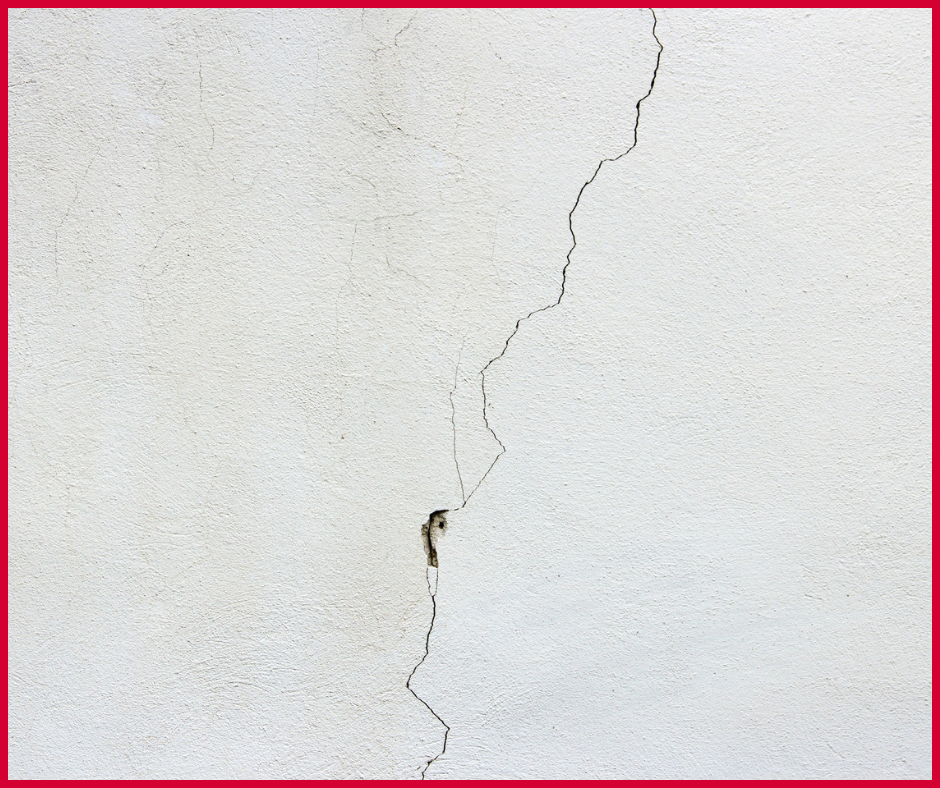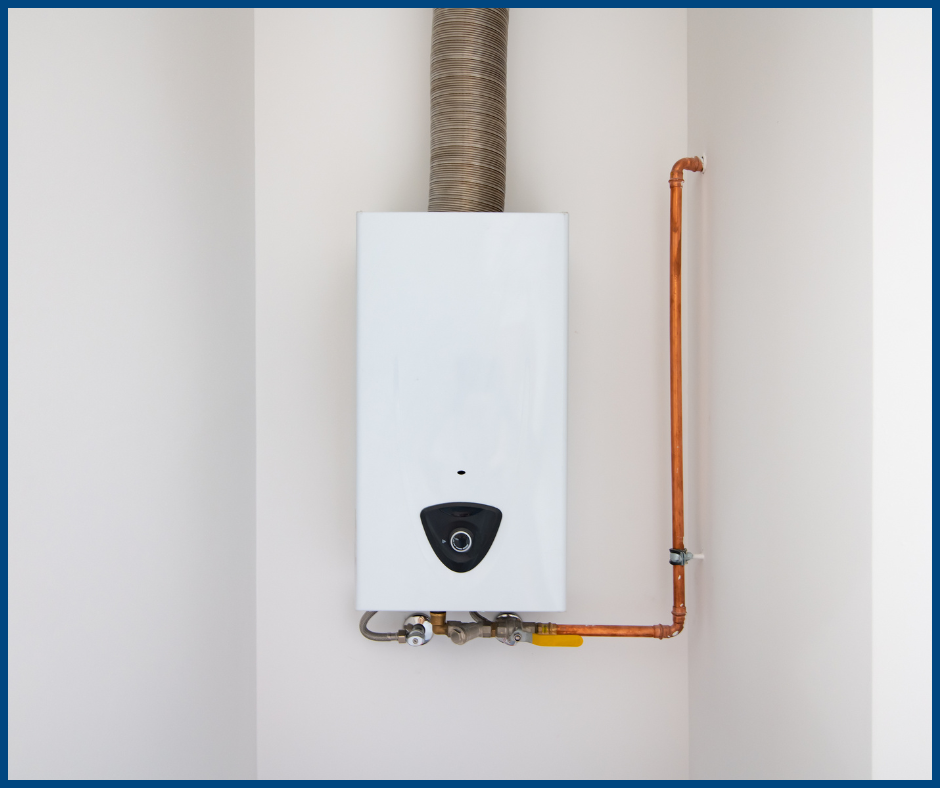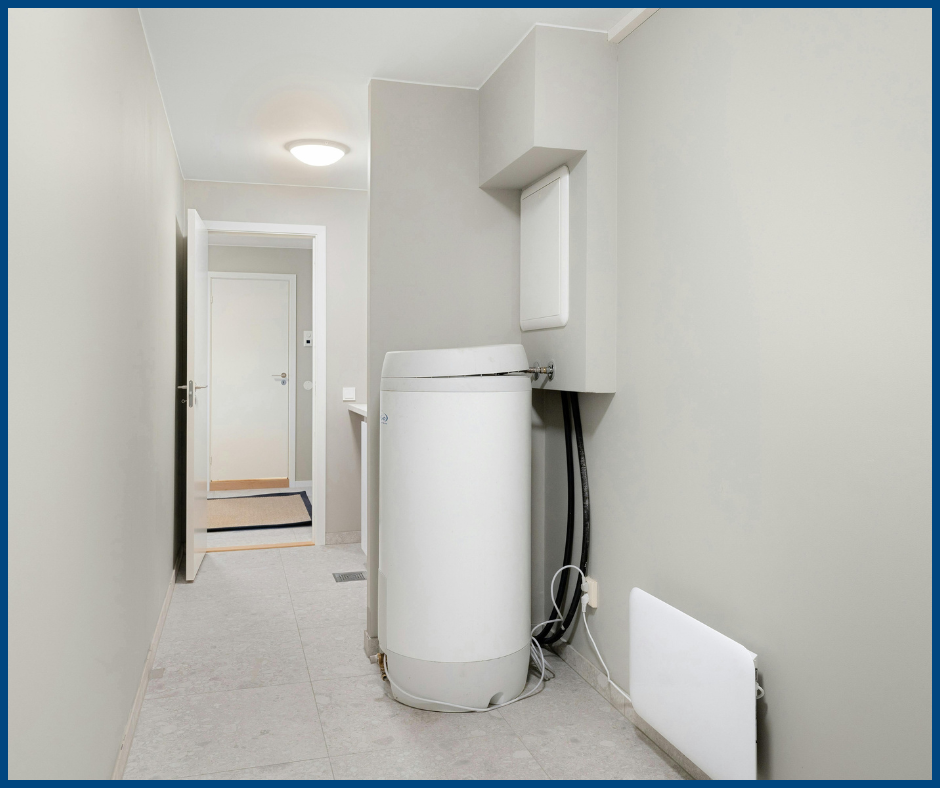Foundation Cracks and Summer Heat: What Homebuyers Should Know
As the summer sun beats down, temperatures aren’t the only thing that rise—so does the risk of structural concerns. One of the most common seasonal issues? Foundation cracks in summer heat. If you’re planning to buy a home during this time of year, it’s important to understand what causes these cracks, how to spot them, and what they might mean for your potential purchase.
Why Do Foundation Cracks in Summer Heat Happen?
Dry, hot conditions can cause the soil around a home’s foundation to shrink and shift. As the ground loses moisture, it contracts and pulls away from the foundation walls, removing support and leading to stress fractures or settling. This process can result in foundation cracks, especially in regions where the soil type is more reactive to moisture loss.
This isn’t just a cosmetic issue—significant movement in the foundation can affect the integrity of the entire structure.
Signs of Foundation Cracks
Not all cracks are created equal, but summer is the perfect time to inspect them. Here are a few red flags homebuyers should look for:
-
Stair-step cracks in brick or block walls
-
Diagonal cracks near windows or door frames
-
Gaps between walls and ceilings
-
Doors or windows that suddenly start sticking
-
Sloping floors or visible unevenness
Any of these signs could point to foundation cracks caused by summer heat, and they warrant a closer look during the inspection process.
What Homebuyers Should Do About Summer Foundation Cracks
If you’re touring homes this summer, take note of any visible cracks or signs of movement, especially on the lower levels of the home or near the foundation line. Don’t ignore subtle signs—some issues may be more serious than they appear.
A professional home inspection can help determine whether foundation cracks in summer heat are superficial or a sign of deeper structural movement. At AmeriSpec, our licensed and certified inspectors know what to look for and how Delaware’s climate can contribute to foundation issues. We’ll give you a clear picture of what you’re walking into—so you can make a smart decision with confidence.
Final Thoughts
Buying a home during the summer doesn’t have to be stressful—but it does mean staying alert. With a little knowledge and the right inspection team, you can navigate foundation cracks in summer heat and avoid costly surprises later.
Let AmeriSpec be your guide through every step of the process. We’re here to help you uncover the full story behind the foundation—so you can move forward with peace of mind.
Inspections in Flip Season: Why Pretty Homes Still Need a Deep Look
Spring and summer bring fresh curb appeal, polished renovations, and plenty of flipped homes hitting the market. These properties often shine with updated kitchens, modern lighting, and trendy flooring—but looks can be deceiving. If you’re considering a newly renovated property, inspections for flipped homes are a critical step in protecting your investment.
Why Inspections for Flipped Homes Matter
Flipping is a fast-paced business. Investors often focus on cosmetic upgrades that attract buyers quickly. But beneath the fresh paint and stylish staging, some flippers may overlook—or knowingly cover up—underlying issues. Inspections for flipped homes reveal what’s beneath the surface, helping you avoid costly surprises after closing.
What a Flipped Home Might Be Hiding
Just because everything looks new doesn’t mean it’s done right. Common issues found in flipped properties include:
-
Improper electrical work
-
Leaky or aging plumbing
-
Unpermitted renovations
-
HVAC systems nearing the end of their life
-
Structural concerns or patched foundation cracks
These aren’t always visible at first glance. That’s why inspections for flipped homes go beyond a visual check—they provide an in-depth look at the systems that truly matter.
Flipped Homes and Building Codes: Not Always a Match
When updates are made quickly, building codes and permit requirements can be missed. A professional home inspector will identify work that might be out of code or done without proper authorization. This is especially important if the flip included:
-
Wall removal or room reconfiguration
-
Electrical panel upgrades
-
Plumbing changes or bathroom additions
Inspections for flipped homes can flag unsafe or illegal work that could become your problem later.
Not Just Pretty—Make Sure It’s Sound
The goal of a flip is to sell fast, but your goal is to buy smart. An inspection gives you peace of mind and a full understanding of the property’s condition. Whether it’s negotiating repairs or walking away from a problem house, knowledge is power.
Choose the Right Inspector for the Job
At AmeriSpec Inspection Services, we’ve handled inspections for flipped homes across Delaware for decades. Our certified inspectors know what to look for and provide clear, detailed reports—complete with photos and explanations you can trust.
A flipped home might look like your dream house. We make sure it doesn’t turn into a nightmare.
Thinking about buying a flipped home?
Schedule your inspection at www.amsde.net and get the insight you need before you commit.
Stay Cool at Home: Creative Ways to Beat the Heat Indoors
As the summer heat sets in, keeping your home comfortable can start to feel like a full-time job. While air conditioning is a go-to solution, it’s not always the most efficient or affordable way to deal with high temperatures. Luckily, your home itself holds plenty of potential to help you stay cool at home—without cranking up the thermostat.
Here are some creative, home-focused ways to beat the heat this season:
Let Your Windows Work for You
Windows can either trap heat or help you control it—it all depends on how you treat them. During the day, keep blinds or blackout curtains closed to block direct sunlight, especially on south- and west-facing windows. For a more permanent solution, consider installing reflective window film or thermal-lined curtains. These simple changes can make a big difference in your home’s temperature and help you stay cool at home without extra energy use.
Upgrade Your Lightbulbs
Still using incandescent bulbs? These old-school lights give off a surprising amount of heat. Swapping them for LED bulbs won’t just reduce your energy bill—it’ll also keep your rooms cooler. It’s a small home improvement with big benefits.
Cool Down Your Bedding and Furniture
Lightweight, breathable fabrics like cotton and linen aren’t just for your wardrobe—they’re perfect for your bed and upholstery too. Switch out heavy throws, rugs, and bedding for lighter alternatives that help regulate body temperature and improve airflow. Small changes in your home’s textiles can help you stay cool at home, especially during those hot, sticky nights.
Use Fans Strategically
Ceiling fans should rotate counterclockwise in the summer to create a wind-chill effect. Portable fans can also help circulate air efficiently—especially if you place one near a shaded, open window during the cooler parts of the day. To take it further, position a bowl of ice in front of the fan to create a DIY cooling breeze throughout the room.
Make the Most of Outdoor Spaces
Your home doesn’t end at the door. Consider turning a patio, deck, or porch into a summer-friendly living space. Use shade sails, umbrellas, or outdoor curtains to block the sun and create a breezy retreat. When your home’s interior starts to feel too warm, having a shaded spot outside can be a great way to stay cool at home—and enjoy it.
Avoid Heat-Building Habits
Believe it or not, many of our everyday routines add extra heat to the home. Avoid using the oven or stove during the hottest parts of the day. Opt for no-cook meals or use appliances like slow cookers and air fryers. Even small habits—like running the dishwasher or doing laundry—are better saved for the evening when it’s cooler.
Add a Touch of Green
Certain houseplants can help lower the temperature indoors by releasing moisture into the air. Plants like aloe vera, ferns, and snake plants are not only low-maintenance but also naturally help you stay cool at home. Plus, they add a fresh, calming touch to any room.
Final Thought
Your home is your refuge—especially during the summer heat. With a few smart adjustments, you can stay cool at home in style and comfort. Whether it’s updating your window treatments, creating shaded outdoor spots, or rethinking your daily routines, these simple changes can make your home feel like a retreat all season long.
Looking for more home-friendly tips or ways to improve your indoor environment? We’re here to help you make the most of every square foot—no matter the temperature outside.
Cosmetic Details Matter: The Value of a Blue Tape Inspection
When you’re buying or building a new home, it’s natural to focus on the big things—like the foundation, roof, plumbing, and electrical systems. But once those essentials are done, the small details can make a big difference. That’s where a Blue Tape Inspection comes in.
What Is a Blue Tape Inspection?
A Blue Tape Inspection is a detailed walkthrough of your new home—usually right before your final closing. The goal? To spot and mark cosmetic flaws using blue painter’s tape. This can include things like:
-
Paint drips or uneven coverage
-
Scratched floors or countertops
-
Gaps in trim or molding
-
Misaligned cabinet doors
-
Dents or dings in drywall
While these may seem minor, they affect how your home looks and feels. And once you move in, fixing them can be more difficult—or even your responsibility.
Why These Details Matter
Cosmetic flaws might not affect how your home functions, but they impact your satisfaction as a homeowner. They can also be signs of rushed or sloppy work. Taking the time for a Blue Tape Inspection shows that you care about quality—and it gives the builder a chance to make things right before move-in.
When Should You Schedule It?
The best time for a Blue Tape is after the builder’s work is mostly complete, but before your final walkthrough or closing. That way, any issues you find can be fixed before you take ownership.
Some homeowners try to do this on their own, but hiring a professional can make a big difference. Trained inspectors know exactly what to look for, and they’ll make sure nothing gets missed.
The AmeriSpec Advantage
At AmeriSpec Inspection Services in Delaware, our Blue Tape Inspection goes beyond surface-level checks. We carefully examine your home’s finishes, trim, walls, and more—providing a complete punch list of cosmetic issues for your builder to address.
Our experienced team knows that small things matter. We’re here to help you move into a home that doesn’t just function well—it looks great too.
Schedule your Blue Tape Inspection today.
Visit www.amsde.net or give us a call to make sure your new home is move-in ready—right down to the final coat of paint.
Tankless vs Traditional Water Heaters: Which is Right for Your Home?
Choosing the right water heater for your home is an important decision, especially when weighing the pros and cons of different systems. In this tankless vs traditional water heater comparison, we’ll break down what each type offers so you can make a confident choice that fits your household’s needs and budget.
What’s the Difference?
Before diving into which is better, let’s start with a quick overview of each type.
A traditional water heater stores a large volume of hot water in a tank and keeps it heated around the clock, so it’s ready when you need it. These systems are common in many homes and typically hold between 40 and 80 gallons.
A tankless water heater, on the other hand, heats water only when you turn on a faucet or shower. There’s no storage tank, which means hot water is generated on demand.
This basic difference is the foundation of any solid tankless vs traditional water heater comparison—and it impacts everything from energy use to installation.
Energy Efficiency
One of the biggest advantages of going tankless is energy efficiency. Since tankless systems don’t store hot water, they only use energy when you actually need hot water. Over time, this can lead to noticeable savings on your utility bills.
In contrast, traditional water heaters use energy throughout the day to keep the water hot, even when no one is using it. For households looking to reduce energy consumption, this factor is key in the tankless vs traditional water heater comparison.
Cost Considerations
Cost is often the deciding factor for many homeowners. In general, traditional water heaters have a lower upfront cost and are less expensive to install, especially if you’re replacing a similar model.
Tankless systems usually come with a higher initial price tag and may require additional work during installation, such as upgrading your home’s electrical system or gas lines. However, they often have a longer lifespan and lower energy costs over time—something worth considering in a long-term tankless vs traditional water heater comparison.
Lifespan and Maintenance
When it comes to durability, tankless water heaters have the upper hand. On average, they last up to 20 years or more with proper care. Traditional units typically last 10 to 15 years.
That said, both systems require regular maintenance. For traditional water heaters, this means flushing the tank to prevent sediment buildup. Tankless units may need descaling to maintain performance, especially in areas with hard water.
If long-term performance is a priority, this could tip the tankless vs traditional water heater comparison in favor of tankless options.
Space Requirements
Another major difference is size. Tankless systems are compact and usually mounted on a wall, freeing up floor space. This makes them a great option for smaller homes or tight utility closets.
Traditional water heaters, with their bulky tanks, require more space and might limit where they can be installed. If saving space is important, the tankless vs traditional water heater comparison clearly leans toward tankless models.
Hot Water Demand
While tankless heaters provide an endless stream of hot water, they do have limitations. If multiple showers, appliances, or faucets are in use at the same time, a single tankless unit may struggle to keep up unless it’s properly sized or you install multiple units.
Traditional water heaters can deliver a consistent supply of hot water to several fixtures at once—until the tank runs empty. After that, there’s a waiting period while it reheats.
Your family’s hot water habits play a big role in this part of the tankless vs traditional water heater comparison.
Which One is Right for You?
Here’s a quick recap:
-
Choose a tankless water heater if you want a long-lasting, energy-efficient, space-saving solution and don’t mind a higher upfront cost.
-
Stick with a traditional water heater if you’re looking for a lower initial investment and a system that handles high-demand households with ease.
There’s no one-size-fits-all answer, but a thoughtful tankless vs traditional water heater comparison can guide you toward the best solution for your home.
Need Help Deciding?
Still unsure which system is right for you? A professional can assess your home’s layout, usage patterns, and utility setup to help you make the most informed decision.
Making the right choice now means enjoying reliable hot water—and energy savings—for years to come.




